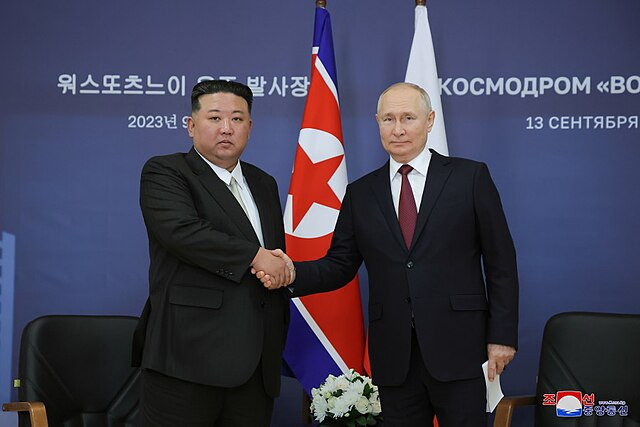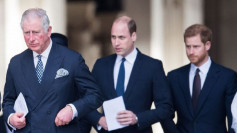The United States expressed grave concerns at a United Nations Security Council (UNSC) meeting on Wednesday, warning that Russia may be on the brink of accepting North Korea's nuclear weapons program-a stark departure from Moscow's long-standing support for denuclearization on the Korean Peninsula.
Ambassador Linda Thomas-Greenfield, the U.S. envoy to the U.N., said intelligence assessments indicate that Russia has increased its military and technological cooperation with North Korea in recent months, including the transfer of air defense systems and continued provision of refined petroleum above U.N. limits. "Alarmingly, we assess that Russia may be close to accepting North Korea's nuclear weapons program, reversing Moscow's decades-long commitment to denuclearize the Korean Peninsula," Thomas-Greenfield stated.
The ambassador highlighted that North Korea has supplied over 20,000 shipping containers of munitions to Russia, which include more than six million heavy artillery rounds and at least 100 ballistic missiles. This partnership, she said, is enabling Russia's continued aggression in Ukraine while exacerbating global security threats.
North Korea's military support extends beyond equipment. Reports suggest that Pyongyang is deploying manpower to bolster Russia's war efforts. Thomas-Greenfield noted, "We also have information that a large number of DPRK-origin 170-mm long-range self-propelled artillery pieces and 240-mm multiple rocket launchers are being introduced into the conflict, and now Russia turns to the DPRK for manpower, as well as munitions."
Russia's growing cooperation with North Korea has drawn international criticism. South Korea's U.N. Ambassador Joonkook Hwang warned that such ties could destabilize Northeast Asia further. "Expect further uncertainties looming over the horizon," Hwang cautioned, noting that North Korea historically escalates provocations during U.S. presidential transitions.
Britain's Deputy U.N. Ambassador James Kariuki condemned Moscow's shift, describing it as a "reckless departure" from the global commitment to nuclear disarmament. The criticism came in response to Russian Foreign Minister Sergei Lavrov's September statement, where he suggested denuclearization of North Korea was a "closed issue."
Russia's U.N. Ambassador Vassily Nebenzia defended the country's actions, insisting they comply with international law. "Russian cooperation with the DPRK...is in accordance with international law, not in violation thereof. It does not pose any threat to states in the region or the international community," Nebenzia said.
North Korea's U.N. Ambassador Kim Song lauded the growing partnership with Russia as a "positive contribution to international peace and security." He also issued a stark warning: "Outbreak of the nuclear war in Northeast Asia is no longer a possibility, but a matter of time," citing U.S.-led military alliances in the region.
Amid these developments, the United States remains concerned about Russia's willingness to obstruct future U.N. resolutions aimed at condemning North Korea's actions or imposing sanctions. "The more Russia relies on Pyongyang, the more North Korea extracts," Thomas-Greenfield emphasized, highlighting how the partnership threatens not only European security but also global peace.
As President-elect Donald Trump prepares to assume office next month, concerns grow over potential provocations from North Korea. Ambassador Hwang suggested that Pyongyang might test an intercontinental ballistic missile or conduct its seventh nuclear test to draw attention and establish leverage for negotiations with the new administration.
North Korea has been under U.N. sanctions since 2006, with progressively stringent measures designed to halt its nuclear and missile programs. However, the emerging Russia-North Korea partnership raises questions about the effectiveness of those sanctions and the broader implications for global security.






